detail profile ginette garcin
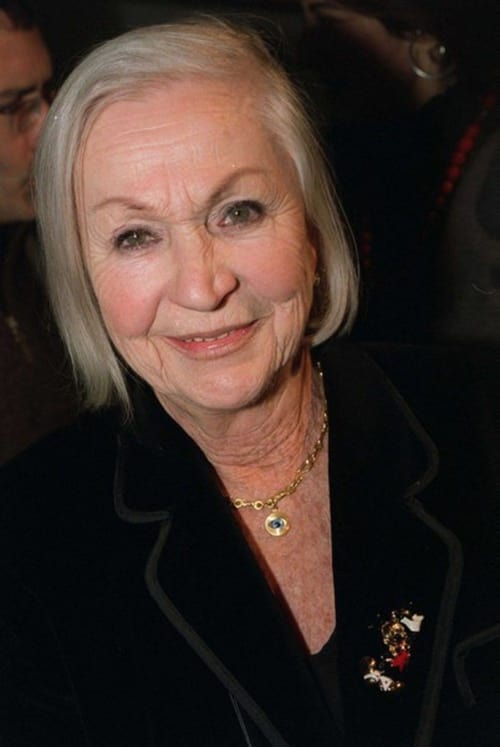
Riwayat Hidup
Ginette Garcin (4 January 1928 – 10 June 2010) was a French actress of stage, film and television.
She lived in Audresselles, Pas-de-Calais.
Ginette Garcin made her musical debut with Jacques Hélian and his orchestra in 1946.
She then worked with Loulou Gasté and went on to appear in Strélesky's absurdist theatre revues in Rouen.
Her portrayal of Charlot to the music of Deux petits chaussons was very well received.
She collaborated with Colette Vudal (who later adopted the name Colette Monroy in Paris), Mona Monick and Robert Thomas, author of some successful detective plays.
Garcin was one of the first to perform and record the songs of Boby Lapointe and Jean Yanne in the 1960s.
In the 1970s, she embarked on a career in film and theatre, with guidance from Audiard, Lelouch, Yanne, Boisset and Tacchella.
She appeared in the television series Marc et Sophie.
In 1990, she wrote the critically acclaimed Le clan des veuves in which she starred alongside Jackie Sardou for four years.
In 1997, she had an acting and singing role in Le passe-muraille, a musical comedy by Marcel Aymé with Didier van Cauwelaert and Michel Legrand.
In her final decade, Ginette Garcin played a character in the television series Famille d'accueil as well as appearing in the films La Beuze and Les Dalton.
A new version of Le clan des veuves was staged at the Bouffes-Parisiens theatre in 2006.
Also in her later years she appeared in Raphaël Mezrahi's play, Monique est demandée en caisse 12.
She died on 10 June 2010 at age 82 of breast cancer.
Source: Article "Ginette Garcin" from Wikipedia in English, licensed under CC-BY-SA 3.
0.
Info Pribadi
Peran Yang Di Mainkan Ginette Garcin
 La lives in Le Havre where...
La lives in Le Havre where...Lea 2011
Léa lives in Le Havre, where she attends college whilst taking care of her elderly grandmother. To make ends meet, she works as a waitress in a night club. Her admittance to the Institute of Political Studies in Paris offers her new opportunities, but at a high price. Léa finds work as a striptease artist, so that each evening she can put into practice the theory of economic liberalism which she learns by day...
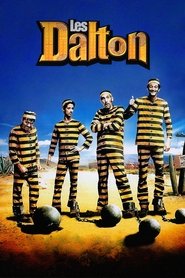 Joe and Averell are the eldest...
Joe and Averell are the eldest...Lucky Luke and the Daltons 2004
Joe and Averell are the eldest and youngest of the four Dalton brothers, the worst outlaws in Wild West history...
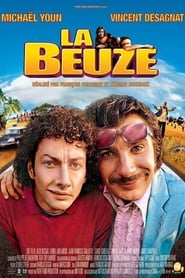 Alphonse Brown who firmly believes he...
Alphonse Brown who firmly believes he...The Dope 2003
Alphonse Brown, who firmly believes he is the bastard son of James Brown, meets up with his best friend Scotch after Brown gets out of jail. On their way to Paris to begin careers as recording artists, the pair stumbles across a potent type of marijuana that was engineered by the Nazis. Their decision to begin selling the stuff leads to a variety of people chasing after them.
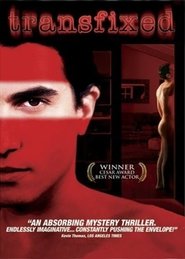 Bo is a transexual prostitute in...
Bo is a transexual prostitute in...Transfixed 2001
Bo is a transexual prostitute in Brussels who left home after being abused by her father. She's infuatuated with a neighbor and suspected by the police in a series of transexual murders. In order to clear herself she must turn detective.
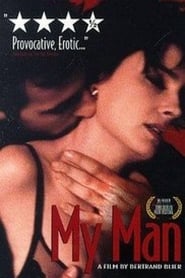 In Lyon where many are unemployed...
In Lyon where many are unemployed...My Man 1996
In Lyon, where many are unemployed, Marie is a prostitute who loves her work: she's thoughtful and exuberant toward clients old and young, slim or flabby. One night, a homeless man sleeps in the foyer of her apartment house; she gives him a hot meal, then a place on the floor to sleep by her radiator, then she offers herself. She falls in love, giving him new life, clothes, a place to live. When he grouses that he must bar hop while she uses the flat for her work, she finds them a larger flat. He grows restless, seducing a manicurist and pressing her to prostitution. He's arrested for procuring, so Marie must decide what to do; he, too, must face the consequences of his choices.
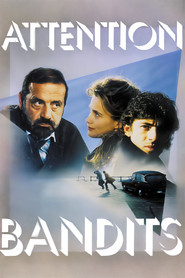 On the day Jean Gabin dies...
On the day Jean Gabin dies...Bandits 1987
On the day Jean Gabin dies, a kidnaper who also takes a fortune in jewels heisted from Cartiers murders Simon Verini's wife. (Simon was fencing the jewels for a youthful gang who robbed Cartiers; he suspects them of the murder.) He's framed for the theft and spends ten years in prison, writing to his daughter, Marie-Sophie, who's 11 when he's sent away. Released, he reconnects to Marie-Sophie and to the young thieves, seeks revenge, and is quickly arrested again. She doesn't know what to make of her father, retreats to her Swiss fiancé, and is flummoxed when one of the young thieves falls for her. Is resolution possible when crime cuts across families and romance?
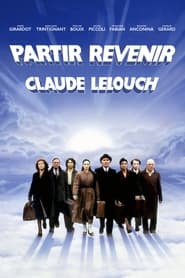 Salom Lerner just finished writing an...
Salom Lerner just finished writing an...Going and Coming Back 1985
Salomé Lerner just finished writing an autobiography. She goes to a TV show called "Apostrophes", hosted by French TV showman Bernard Pivot. Pivot then imagines a film that could be created from her gripping story. A film entirely made of music because after seeing the young pianist Erik Berchot, Salomé believes seeing her long lost brother, who was a musician as well. A brother she had lost along with her parents in 1943. However, the Lerners did in fact escape the gestapo and might have based themselves in Paris...
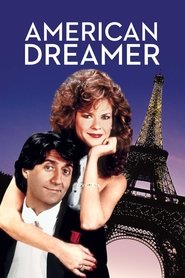 American housewife Cathy Palmer loses her...
American housewife Cathy Palmer loses her...American Dreamer 1984
American housewife Cathy Palmer loses her memory on a trip to Paris after being hit by a car. She wakes up in the hospital believing she's the fictional international spy, Rebecca Ryan.
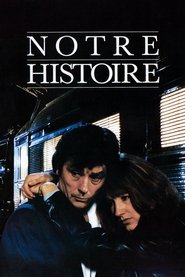 Robert Avranche a middleaged alcoholic garage...
Robert Avranche a middleaged alcoholic garage...Our Story 1984
Robert Avranche, a middle-aged, alcoholic garage owner, is sitting on a train, reflecting on the emptiness of his life. An attractive young woman, Donatienne, suddenly enters the compartment and offers to make love to him. Robert accepts but, when the woman leaves the train afterwards, he decides to follow her...
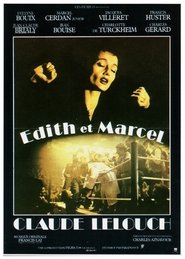 This tragic musical drama chronicles the...
This tragic musical drama chronicles the...Edith and Marcel 1983
This tragic musical drama chronicles the star-crossed love between beloved French singer Edith Piaf and World Middleweight boxing champion Marcel Cerdan who died in a plane crash. The tumultuous affair is paralleled by the love affair of a French POW and his young pen pal who get engaged after writing to each other for four years and having never met. Their romances are framed by the sad, torchy songs of Piaf.
 The film follows four families with...
The film follows four families with...Bolero 1981
The film follows four families, with different nationalities (French, German, Russian and American) but with the same passion for music, from the 1930s to the 1960s. The various story lines cross each other time and again in different places and times, with their own theme scores that evolve as time passes. The main event in the film is the Second World War, which throws the stories of the four musical families together and mixes their fates. Although all characters are fictional, many of them are loosely based on historical musical icons (Édith Piaf, Josephine Baker, Herbert von Karajan, Glenn Miller, Rudolf Nureyev, etc.) The Boléro dance sequence at the end brings all the threads together.
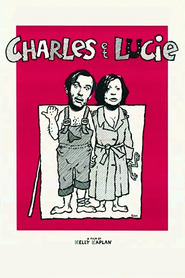 An old and poor couple Charles...
An old and poor couple Charles...Charles and Lucie 1979
An old and poor couple, Charles and Lucie, scrape by working as a concierge and an untalented antique dealer, respectively. But one day, their dreary daily routine is disrupted by the surprising news that they have inherited a luxurious house in the South of France.
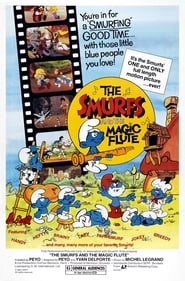 The evil knight Torchesac who is...
The evil knight Torchesac who is...The Smurfs and the Magic Flute 1976
The evil knight Torchesac, who is at the service of the sinister lord of La Mortaille, gets a very powerful magic flute and uses it for evil purposes. Johan and Pirlouit, assisted by the magician Homnibus, travel to the land of the Smurfs, the only manufacturers of this sort of instrument, to get a new one and battle the usurpers.
 Two distant cousins meet at a...
Two distant cousins meet at a...Cousin, Cousine 1975
Two distant cousins meet at a wedding banquet for an elderly couple. Over time, a close friendship develops between them, but their spouses begin to think that they are more than just friends.
 Georges Lajoie is a Parisian caf...
Georges Lajoie is a Parisian caf...The Common Man 1975
Georges Lajoie is a Parisian café owner. As every summer, Georges, his wife Ginette and grown-up son Léon go on holiday to Loulou's campsite, where they meet up with the Schumacher family (whose father is a bailiff) and the Colin family (who sells bras in the markets). This year, their peace is slightly disturbed by the proximity of a construction site where foreign workers are employed. Xenophobic comments are made. One evening at the ball, a fight breaks out between Lajoie, Albert Schumacher and two algerian immigrant workers...
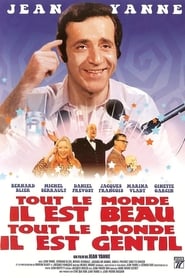 Selon Radio plus prs de Dieu...
Selon Radio plus prs de Dieu...Everybody He Is Nice, Everybody He Is Beautiful 1972
Selon "Radio plus près de Dieu", rien n'est conçu sans Dieu, surtout pas les shampoings, produits de beauté, la vente des disques... Un animateur dénonce cette escroquerie à l'antenne, ce qui lui vaut d'être licencié. Il réapparaîtra sur de nouvelles ondes avec "Radio plus près de la Vérité".
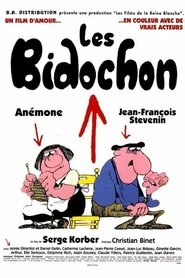 Raymond and Robert Bidochon lead a...
Raymond and Robert Bidochon lead a... A successful playwright reflects on his...
A successful playwright reflects on his...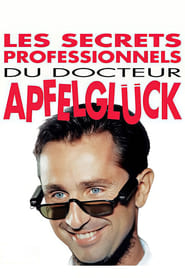 This series of sketches introduces doctor...
This series of sketches introduces doctor...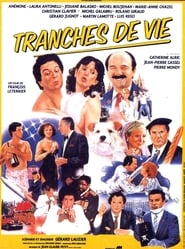 A series of humorous sketches on...
A series of humorous sketches on...